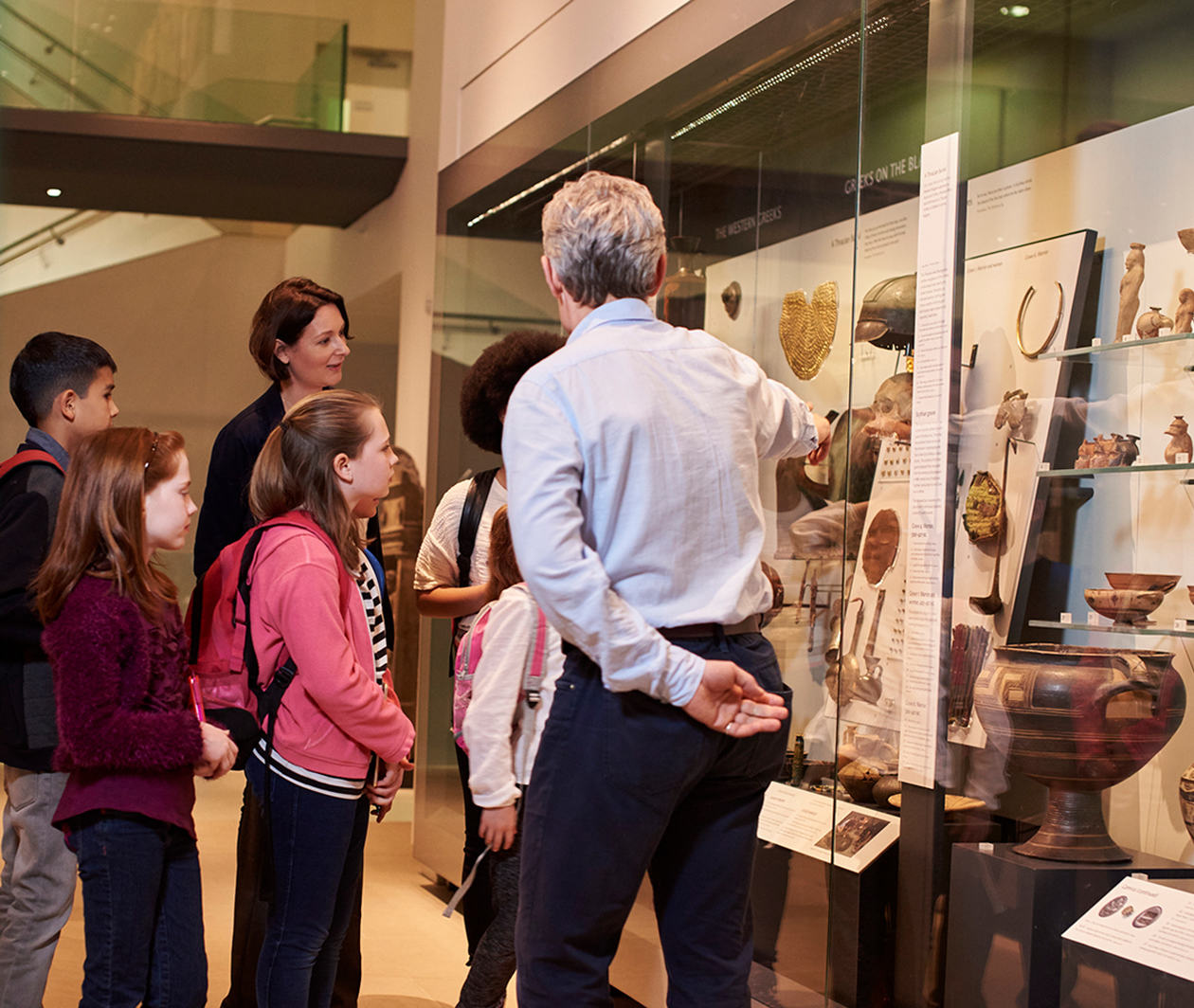Skip to 0 minutes and 7 seconds MAGGIE JAGO: Museums have always been recognised as sites and sources of learning. They have the power to ignite curiosity, spark the imagination, and provide historical narratives that inform the here and now.
Skip to 0 minutes and 20 seconds ANNE WALLACE: The stimulus might be the building, a collection, or a single object. The museum experience can be a profoundly emotional one that endures a lifetime as it has been for us. But how can we design these kinds of experience?
Skip to 0 minutes and 36 seconds MAGGIE JAGO: I’m Maggie Jago.
Skip to 0 minutes and 37 seconds ANNE WALLACE: And I’m Anne Wallace.
Skip to 0 minutes and 39 seconds MAGGIE JAGO: This free online course from the University Glasgow, Museum Education, the Museum a Site and Source for Learning is a three week exploration behind the scenes of the museum.
Skip to 0 minutes and 49 seconds ANNE WALLACE: You’ll meet the professionals who collaborate in exhibition design, consider the thought process is they engage in and the challenges that they face. Through discussions and activities, we will explore possible solutions to these challenges.
Skip to 1 minute and 4 seconds MAGGIE JAGO: What to visitors want? We will hear from those whose task is to find this out. Why is it that some people appear to have no interest in visiting museums, while others are frequent visitors? How does new technology and new media affect the museum?
Skip to 1 minute and 21 seconds ANNE WALLACE: Exhibitions are the mainstay of museums, affording rich opportunities for learning and in-depth exploration of museum collections. But what is a starting point for a new exhibition? Who decides and what influences that decision?
Skip to 1 minute and 35 seconds MAGGIE JAGO: Is the conservator only responsible for the repair and preservation of objects and paintings, or other much bigger decisions to made?
Skip to 1 minute and 44 seconds ANNE WALLACE: And finally, we will put into practise what we’ve learned by creating our very own exhibition.
Skip to 1 minute and 51 seconds MAGGIE JAGO: Throughout this course, you will be given the opportunity for more in-depth study, using readings and research to develop your understanding of how knowledge and learning inform practise.
Skip to 2 minutes and 1 second ANNE WALLACE: Museums have been a source of wonderfully enriching experience for us throughout our lives. So let us take this journey together and discover the rich opportunities for learning that museums can offer.

